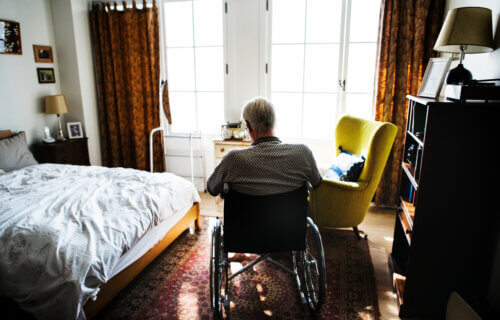GLASGOW, Scotland — Not seeing family and friends can significantly shorten a person’s life, a new study warns. Researchers in Scotland have found a striking link between the lack of in-person visits from loved ones and an increased risk of death.
This study, which scrutinizes the influence of social interaction on mortality, offers new insights into how social factors can impact our health. Social isolation has been a serious area of concern, particularly since the start of the COVID-19 pandemic.
At its core, social connection is more than the number of friends on social media or attendance at social events. It’s a complex blend of how we interact (the “structural” aspect, like how often we meet others) and how we feel within these interactions (the “functional” aspect, like feelings of loneliness). Strikingly, both these aspects independently influence our risk of death and heart disease.
The researchers, led by Hamish Foster, examined data on 458,146 adults who were part of the UK Biobank. These participants, with an average age of 56.5, were enrolled between 2006 and 2010. During their initial participation, they filled out a detailed questionnaire focusing on five key aspects of social interaction. These included personal feelings of loneliness and the ability to confide in someone, as well as more tangible measures like the frequency of visits from friends and family, participation in weekly group activities, and whether they lived alone.
After closely following these individuals for over 12 years, during which 33,135 participants passed away, the study discovered a clear connection between all five types of social interactions and the risk of dying from any cause. Notably, the absence of physical social interactions, like visits from loved ones, had a more pronounced impact on mortality risk compared to subjective feelings of loneliness or isolation.

Importantly, the study found a 39-percent increase in the risk of death for individuals who never received visits from friends or family. Additionally, the study authors observed that engaging in weekly group activities did not benefit those who were completely isolated from family visits in any significant way. People who never had visitors and did not join group activities had nearly the same heightened risk of death (49%) as those who did join group activities but still did not see their family (50%).
However, there’s a glimmer of hope. The research suggests that even occasional visits from friends or family (as little as once a month) could have a protective effect, significantly lowering the associated increased risk of mortality. This finding underscores the potential life-saving impact of maintaining social connections, especially in our later years.
The study emphasizes that social health is complex, involving various dimensions. It’s not just about feeling lonely or the number of social activities one engages in, but a combination of these factors that needs to be understood holistically. “Our findings suggest that advice, interventions, and policy may need to be tailored to address different aspects of social connection and target the highest risk groups,” the authors write.
The study is published in the journal BMC Medicine.
You might also be interested in:
- Poetry can protect against impact of loneliness and isolation
- AI-powered robots could help humans combat loneliness, lack of friends
- Social isolation, loneliness raise risk of death from heart attack or stroke by nearly a third


We need more lock downs…..stay tuned and trust the science.
Shit, what do we do when all of our family has died, and we are left? Do dogs make a family?
I wish they did. Dogs and Large Parrots (that’s all I have left). If it weren’t for them I would have been gone a long time ago.
Yes, I think they do.
Uh..yeah. What if you hate them?
Exactly. I’ll take quality of life over quantity of life.
Ew… people.
Study Finds that Study Finds is full of malarkey.
Your hate will hurt you deeply. It rots our heart. Learn to forgive.